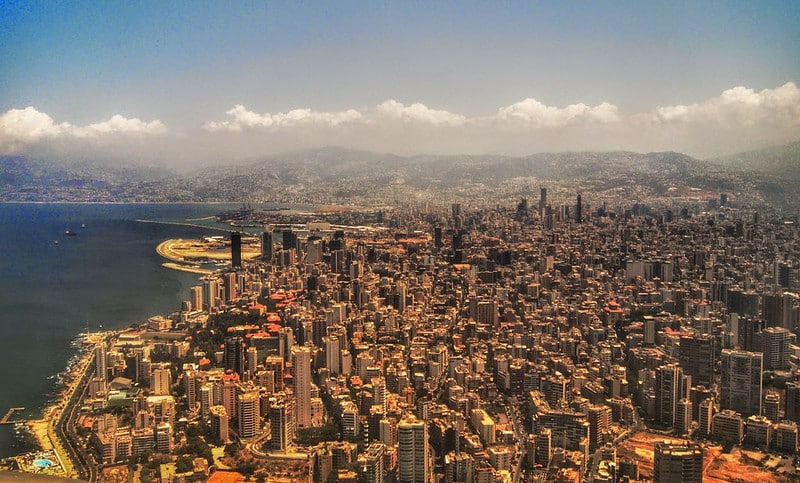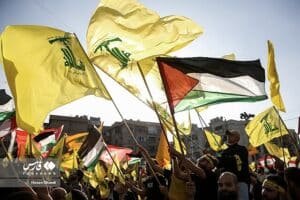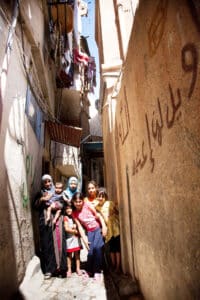Beirut in 2015 (source: Flickr)
On 15 May, Lebanese citizens will go to the polls of crucial elections in the damaged democracy in the country. Few Lebanese expect a surprising result at the polls, as established parties firmly control the electoral process. Meanwhile, geo-political powerful actors meddle in Lebanese politics, in their bid to gain or keep influence. Lately, Saudi Arabia and Kuwait re-established ties with Beirut after several diplomatic rows.
Saudi Arabia’s bid for influence
A diplomatic row preceded the thawing of relations between Lebanon and Gulf countries, specifically Saudi Arabia and Kuwait. Lebanon’s Information Minister earlier called the Saudi-led coalition war in Yemen “futile”, angering Saudi officials. Furthermore, Gulf countries are unhappy with the rising influence of Iran-affiliated Hezbollah in Lebanon and the constant influx of the captagon drug from Lebanon into their countries.
Lately, after several commitments made by Lebanese Prime Minister Najib Mikati, Saudi Arabia and Lebanon have mended ties. Mikati will visit Riyadh later this month, and Saudi Arabia will go ahead with providing humanitarian assistance to the badly-hit Lebanese economy.
Since 2017, Lebanon’s relations with Saudi Arabia have been difficult. Then, Saudi Arabia infamously made Lebanese PM Saad al-Hariri resign to reel in Iranian influence in the country. The move backfired, and since then, much-needed financial aid from Gulf countries to Beirut dried up.
Current Saudi rapprochement with Lebanon can be seen in tandem with its moves to re-establish relations with the Syrian regime of Bashar al-Assad. As Saudi Arabia wishes to balance Iranian influence in the region, it opts for some diplomatic relations with Lebanon and Syria. Especially in Lebanon, as diplomatic influence can prove useful towards the May 15 parliamentary elections.
Troublesome election conditions
EU and US diplomatic actors have long pushed for the Lebanese elections to be organized in time. It is expected to succeed – as the 15 May elections will not be postponed. However, the circumstances in which the elections will be held are questionable. As Lebanon suffers from lack of electricity, polling booths might be in the dark for parts of the day.
The Lebanese Supervisory Commission for Elections is heavily underfunded – only having 18 million dollars to spend, compared to the 54 million dollars in 2018. Lebanese established political actors deliberately underfund this Commission, threating the legitimacy of upcoming elections. In combination with the unreliable electricity grid in the country, many fear for country-wide voting manipulation and corruption.
World Bank and IMF recovery plans
Meanwhile, Lebanon is close to reaching an agreement with the World Bank over a 150 million dollar loan for food security, Economic Minister Amin Salam said on April 19. Also, Lebanon is holding talks with the IMF over investment programs. “Work is ongoing and the train is moving. I am optimistic.” He said that the IMF is focusing on three sectors— electricity, transportation and internet — crucial infrastructure programs aimed to reactivate the whole economy.
The first hurdle already proved difficult. As the Lebanese parliament discussed a bill on capital controls –long-desired legislation by the IMF – large protests were held by depositors who fear their money will evaporate.
Bleak prospects for the deprived Lebanese
Lebanon’s democracy is badly hurt, and has a long way to go to recover. It seems that in the upcoming May 15 elections, many actors have influence on its outcome – except for the Lebanese citizens who demand change for years. As seen after the Arab Spring, in Egypt among others, western institutions tolerate the political leaders “they know”, instead of accommodating an election setting in which new political parties can challenge incumbent powers. For the EU and the US, focus now mainly is on curbing Hezbollah influence in the country. As seen in previous years, these forms of geo-political meddling in Lebanon have only further entrenched its citizens in a near-hopeless economic catastrophe.
Sources: Al Jazeera I Al Jazeera II France24 AP News Arab News Reuters Carnegie Endowment
Photo: Flickr



